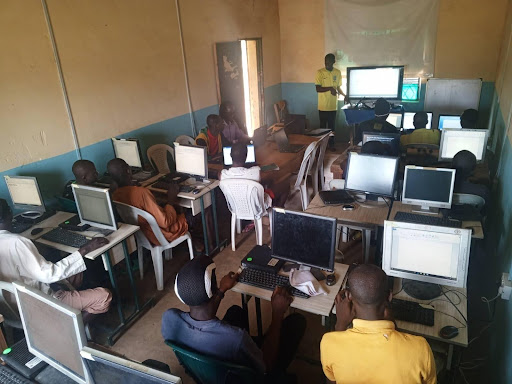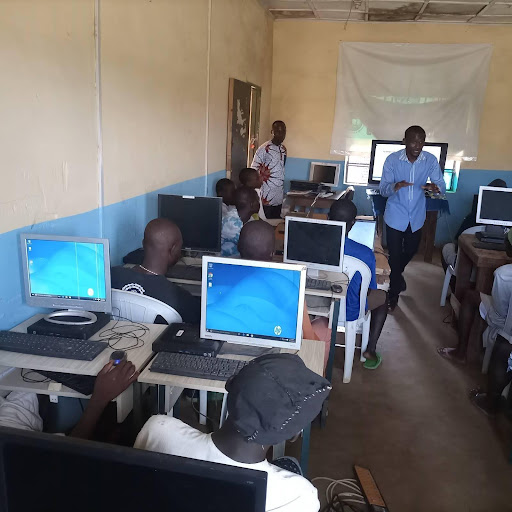Tech Rehabilitation: Bridging the Digital Divide in Correctional Centers
How can digital knowledge help with UN’s goal of crime prevention? Fantsuam is working with detainees and the staff in the Kafanchan correctional center, providing them with digital skills with the aim to reduce re-offending and create a smoother transition back into society.


How do you ensure better transitions back into society after having been detained for a while? How can you reduce the risk of re-offending? Providing people with the necessary tools, resources and knowledge is a proactive way to facilitate a smoother transition from detained to free.
Fantsuam Foundation found that although this happens to a large degree, there is still a challenge when it comes to detainees’ digital knowledge and skills, which can become a big hurdle once these people are released. Many public services as well as socialization and information are found online or happen through social media.
Addressing this specific issue is what Fantsuam Foundation is aiming to do with this project. In this blog we’ll share a bit more about the project, and why this is not only important, but also an effective way to address such an issue from a wider point of view.
From concept to impact
Fantsuam Foundation started this project as a response to the physical and mental toll it can take to be detained at a correctional center. To reduce potential alienation from general society while being in a correctional facility, Fantsuam saw an opportunity to improve the opportunities to encourage positive behavioral changes by offering intellectual stimulation.
This project focuses on facilitating higher levels of digital literacy, offered to both the detainees and the staff members of the Kafanchan Correctional Center. The project is a pilot, which will be used as a proof of concept that can be used as a forerunner for potential roll-outs elsewhere in the country.
When asking Fantsuam why it is important that the people in the Kafanchan Correctional Center get digital knowledge, Fantsuam answered the following:
“Due to inadequate resources, the correctional center has not been able to implement capacity building of its inmates to prepare them for integration on discharge. This project is the first time digital literacy capacity building is being provided to the inmates and officers of the correctional center. Such skills and knowledge will be an advantage for the inmates when they are discharged either to seek employment or to become self-employed.”
This project also addresses the necessity for education and exclusion of detainees by preparing them for job opportunities upon their discharge. Particularly digital skills will improve their chances of work opportunities in the IT sector. Fantsuam explains: “The IT industry is now one of the most assured places for employment. The discharged detainees will be better prepared to participate in such a job market.”

Aligning with global visions: UN’s crime prevention goals
Looking at the project in a broader context it can be linked to the UN’s goal to prevent crime and reduce reoffending, which is one of the main goals of criminal justice intervention. The UN’s goals of crime prevention uses strategies and measures that reduce the risk of crimes occurring, and their potential harmful effects on individuals and society, including fear of crime, by intervening to influence their multiple causes.
The strategy for this project with Fantsuam is aimed at reducing re-offending based on the principle of rehabilitation and reintegration as proposed by the UN. Crime prevention offers opportunities for a humane and more cost-effective approach to the problems of crime. The UN demands that Crime prevention considerations should be integrated into all relevant social and economic policies and programs, including those addressing employment, education, health, housing and urban planning, poverty, social marginalization and exclusion.

Long term outlook
As Fantsuam is currently implementing the project, it is too soon to see any results yet. The hope is that the long-term outcomes of this project contribute to overall lower rates of re-offending in this region of Nigeria, and that the then former detainees will have realistic opportunities to reintegrate back into society.